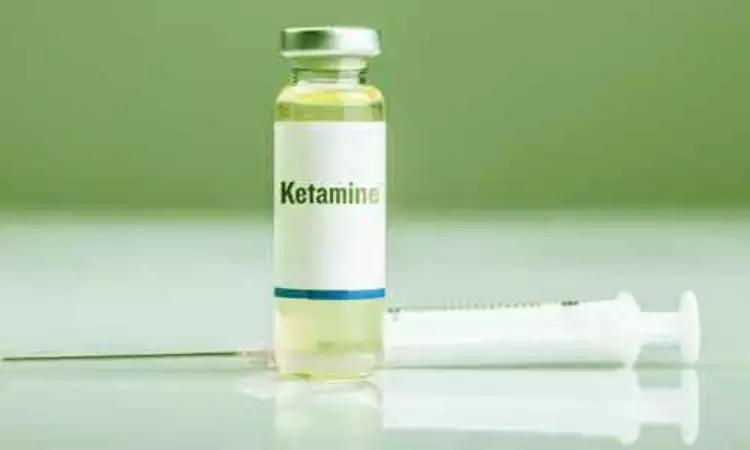- Home
- Medical news & Guidelines
- Anesthesiology
- Cardiology and CTVS
- Critical Care
- Dentistry
- Dermatology
- Diabetes and Endocrinology
- ENT
- Gastroenterology
- Medicine
- Nephrology
- Neurology
- Obstretics-Gynaecology
- Oncology
- Ophthalmology
- Orthopaedics
- Pediatrics-Neonatology
- Psychiatry
- Pulmonology
- Radiology
- Surgery
- Urology
- Laboratory Medicine
- Diet
- Nursing
- Paramedical
- Physiotherapy
- Health news
- Fact Check
- Bone Health Fact Check
- Brain Health Fact Check
- Cancer Related Fact Check
- Child Care Fact Check
- Dental and oral health fact check
- Diabetes and metabolic health fact check
- Diet and Nutrition Fact Check
- Eye and ENT Care Fact Check
- Fitness fact check
- Gut health fact check
- Heart health fact check
- Kidney health fact check
- Medical education fact check
- Men's health fact check
- Respiratory fact check
- Skin and hair care fact check
- Vaccine and Immunization fact check
- Women's health fact check
- AYUSH
- State News
- Andaman and Nicobar Islands
- Andhra Pradesh
- Arunachal Pradesh
- Assam
- Bihar
- Chandigarh
- Chattisgarh
- Dadra and Nagar Haveli
- Daman and Diu
- Delhi
- Goa
- Gujarat
- Haryana
- Himachal Pradesh
- Jammu & Kashmir
- Jharkhand
- Karnataka
- Kerala
- Ladakh
- Lakshadweep
- Madhya Pradesh
- Maharashtra
- Manipur
- Meghalaya
- Mizoram
- Nagaland
- Odisha
- Puducherry
- Punjab
- Rajasthan
- Sikkim
- Tamil Nadu
- Telangana
- Tripura
- Uttar Pradesh
- Uttrakhand
- West Bengal
- Medical Education
- Industry
Lower Dose of Ketamine Equally Effective in Reducing Pain: Study

MAYWOOD, IL - A new Loyola Medicine study found that reducing the standard dose of IV-administered ketamine in half is as effective as the larger, standard dose in reducing pain in adults.
Ketamine is known to provide pain relief comparable to opioid medications, which are highly addictive. In the recent study, appearing in the journal Academic Emergency Medicine, researchers studied 98 patients, ages 18 to 59, who presented to the emergency department with acute, moderate to severe pain. The patients were randomized prospectively to receive either 0.15 mg/kg of ketamine (low dose) or 0.30 mg/kg (high dose).
Patients and providers were blinded to dose, with the primary outcome of pain measured on the 11-point numerical rating scale (NRS) at 30 minutes. At 15 minutes, the high dose group had a greater decrease in pain on the NRS but more adverse events. At 30 minutes, adverse events and pain were similar. Overall, patients generally reported that they would take ketamine again for pain – 75.6% in the low-dose group and 61.7% in the high-dose group.
"We challenged the conventional ketamine dose used to treat pain," said lead study author Shannon Lovett, MD, emergency medicine physician at Loyola University Medical Center (LUMC) and associate professor in the Department of Emergency Medicine at Loyola University Chicago Stritch School of Medicine. "Our study should help demonstrate that a lower dose is sufficient to treat pain."
The study did not find a significant reduction in side effects from the lower dose.
"As we continue with our research, we hope to find data that supports diminished side effects with the lower dose of ketamine with equal efficacy in treating pain," said senior study author Megan A. Rech, emergency medicine clinical pharmacist at LUMC and an adjunct assistant professor and research coordinator at Stritch.
Dr Kartikeya Kohli is an Internal Medicine Consultant at Sitaram Bhartia Hospital in Delhi with super speciality training in Nephrology. He has worked with various eminent hospitals like Indraprastha Apollo Hospital, Sir Gangaram Hospital. He holds an MBBS from Kasturba Medical College Manipal, DNB Internal Medicine, Post Graduate Diploma in Clinical Research and Business Development, Fellow DNB Nephrology, MRCP and ECFMG Certification. He has been closely associated with India Medical Association South Delhi Branch and Delhi Medical Association and has been organising continuing medical education programs on their behalf from time to time. Further he has been contributing medical articles for their newsletters as well. He is also associated with electronic media and TV for conduction and presentation of health programs. He has been associated with Medical Dialogues for last 3 years and contributing articles on regular basis.
Dr Kamal Kant Kohli-MBBS, DTCD- a chest specialist with more than 30 years of practice and a flair for writing clinical articles, Dr Kamal Kant Kohli joined Medical Dialogues as a Chief Editor of Medical News. Besides writing articles, as an editor, he proofreads and verifies all the medical content published on Medical Dialogues including those coming from journals, studies,medical conferences,guidelines etc. Email: drkohli@medicaldialogues.in. Contact no. 011-43720751


